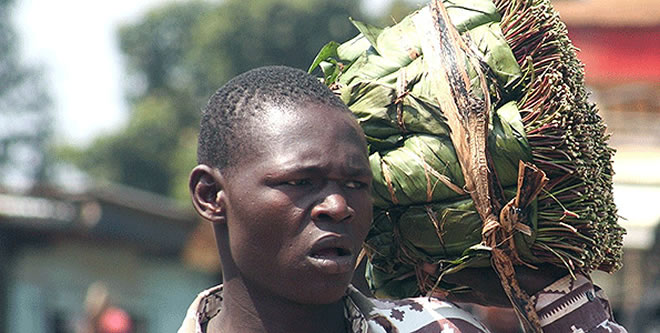
A miraa trader in Mutuati market in Igembe North district. PHOTO / FILE
The UK government's official drugs advisory body has rejected calls to ban the herbal stimulant, khat (miraa).
The Advisory Council on the Misuse of Drugs (ACMD) said there was "insufficient evidence" that khat caused health problems.
The stimulant is traditionally used by members of the Somali, Yemeni and Ethiopian communities.
It has been outlawed by the US and Canada and in most European countries, most recently by the Netherlands.
Miraa is one of Kenya’s top fresh produce exports. In the UK, Kenya exports 36 tonnes of khat per week earning Sh2.15 billion annually.
ACMD's decision not to ban khat is good news to Kenyan miraa traders who recently were up in arms over what they termed as government's failure to petition Amsterdam to reverse a ban on trade and use of the narcotic. (READ: Miraa traders accuse State of failure to petition Dutch ban)
The Netherlands was a market priced at Sh1.6 billion annually. The ban, which was first proposed in January last year, became effective on January 5, this year.
Early this month, the Royal Dutch Airlines (KLM) stopped airlifting khat to Amsterdam, saying it was reacting to a circular from The Hague government to traders in Amsterdam airport last Friday warning against trade in the product.
Somali groups in the UK had told the ACMD that use of khat, which acts as a stimulant when chewed, was a "significant social problem".
Campaigners said it caused medical problems and family breakdowns.
The ACMD also said there was "no evidence" it was directly linked with serious or organised crime.
The council makes recommendations to ministers on the control of drugs, including the classification of substances under the Misuse of Drugs Act 1971.
No comments:
Post a Comment